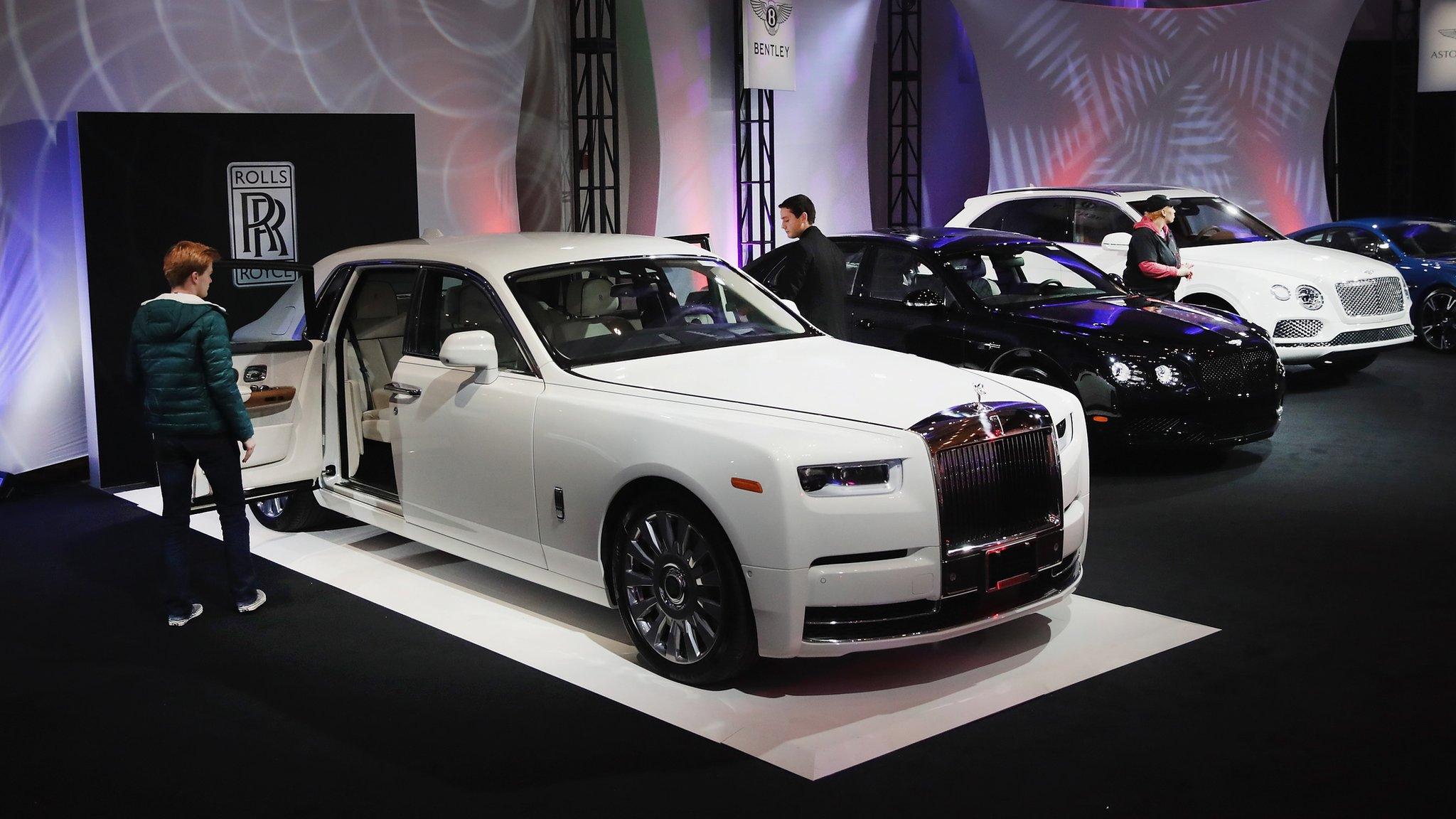Four things we learnt from this year's Detroit car show
- Published
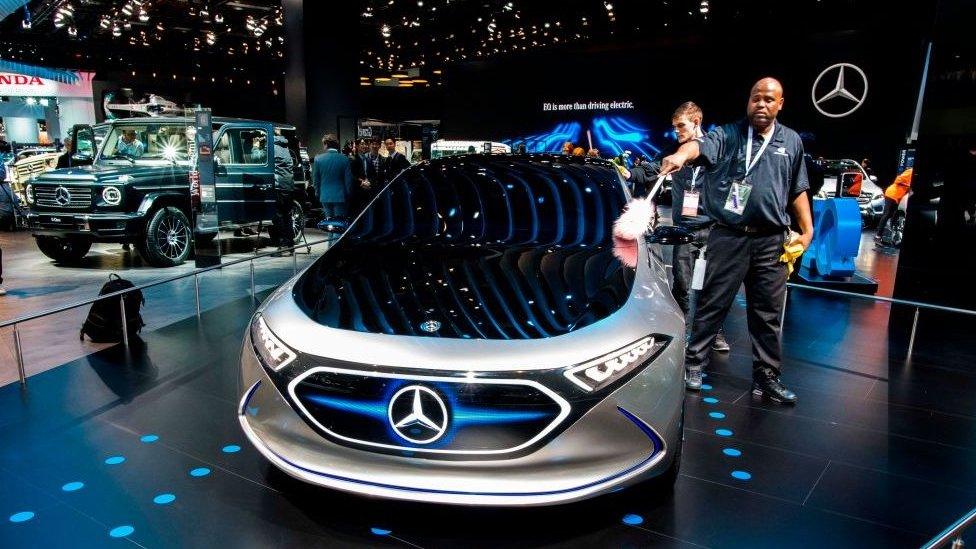
Car companies displayed the latest trucks and electric vehicles at the North American Auto Show in Detroit, Michigan this week.
Here are some of the highlights - from futuristic concept cars to vehicles aimed at road-users today.
Headlights get personal
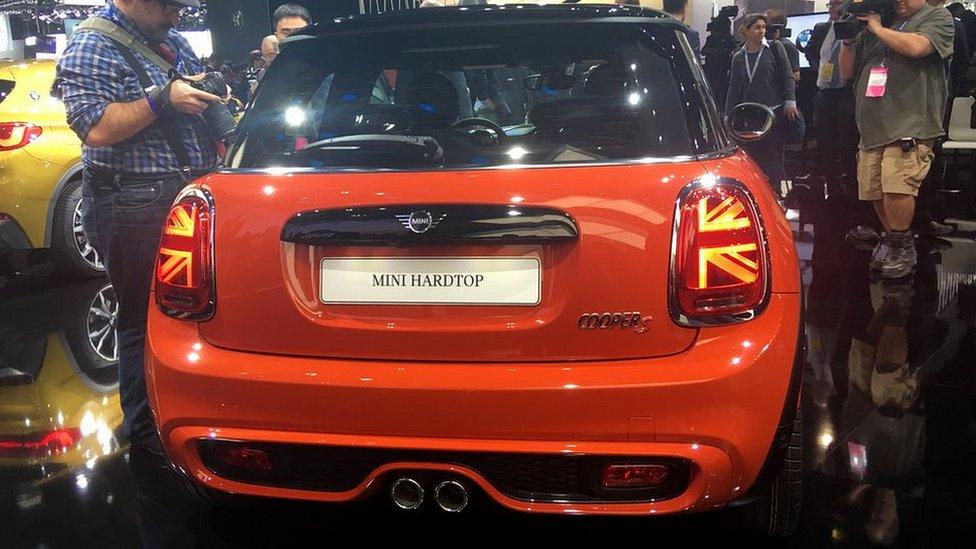
Carmakers are doing more with LED design
The next crop of SUVs and trucks will come to market with prominent grills and ever narrower headlights, a look auto buffs said is designed to project power.
The leaner, meaner headlights are also one of the most visible ways that new technology - in this case, LED lighting - is changing car design.
The new lights are more powerful, allowing companies to shrink their size, while declining costs have freed companies to incorporate more varied designs.
Tail lights carve out C-shapes on the Chevy Silverado truck. The Mercedes Benz fleet uses lighting details as signatures for each vehicle class. And BMW unveiled a new mini with a Union Jack on its tail-light.
"This is design. It's cool, customers will love it and it will help motivate customers to buy the car," says Nicolas Peter, a member of BMW's managing board.
As reliability and features get more uniform, car companies are turning more to design and customization to distinguish their products and keep buyers interested, says Brian Moody, executive editor of Autotrader, an online car sales site.
"That's the next frontier."
A Chinese future?
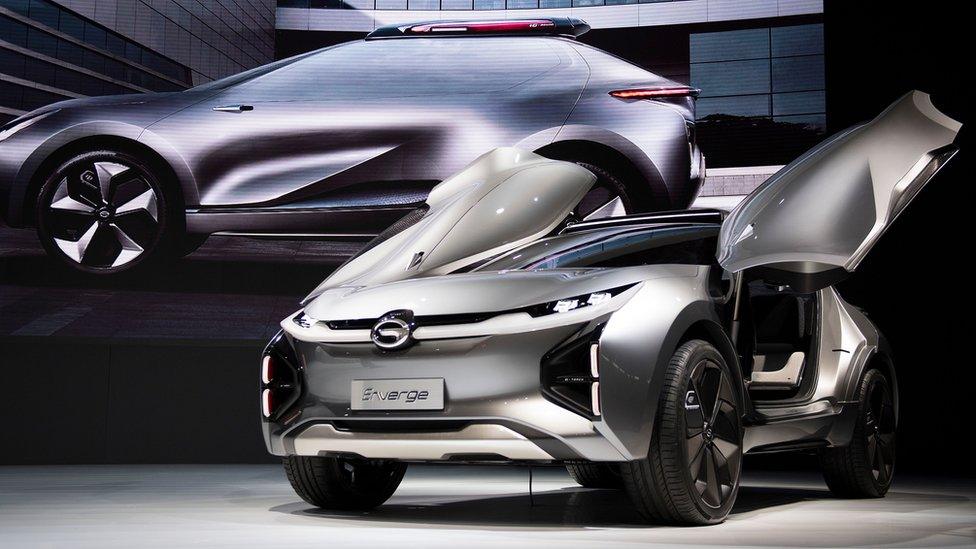
The gull-winged Enverge had its world premiere at this year's Detroit show
Guangzhou Automobile Group or GAC, one of the leading Chinese car companies, had floor space at the show for a fourth year.
The company says it has its eye on the US market, where it plans to start selling toward the end of 2019.
The firm had earlier set a 2017 target date.
At this year's show, the company's unveiled a sci-fi inspired concept car, a two-seater with doors that opened like wings, virtual reality screens on the side windows and a fog lamp that could be detached for use as a flashlight.
Breaking into the car market is an uphill battle for any new company, but analysts say futuristic concept cars are one way to catch the public's attention, even if they never become reality.
"Chinese automakers want to get our attention just like the next company," says Mr Moody of Autotrader. "The whole point of concept cars is that wow factor to get you in."
Making America Great Again?
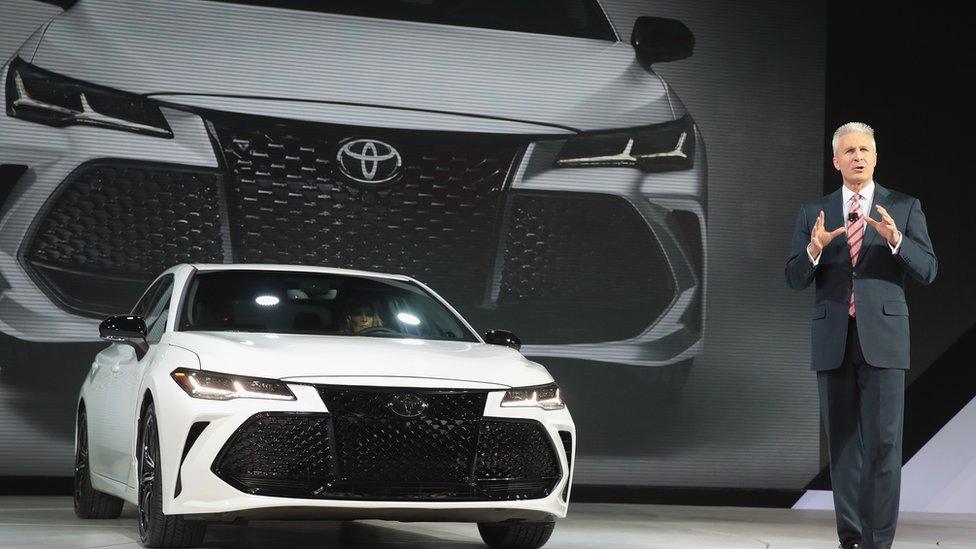
Toyota is one of the companies that has announced new investments in the US
Several companies have announced US expansions recently, news that has drawn extra attention amid the America First rhetoric of President Donald Trump and jockeying over trade agreements.
BMW continued this trend, pledging to invest an additional $600m into its Spartanburg, South Carolina plant by 2021, and spend $200m on training and education.
"We are proud to call the United States our second home and to be responsible for more than 70,000 jobs in this great country," says Nicolas Peter, one of BMW's managing board members.
Companies have long had plants in the US for efficiency reasons.
But emphasizing those commitments may be more "top of mind" this year due to the political currents, said Mr Moody.
Mike Helton, vice chairman of Nascar, said companies are also tapping into the sentiments of their customers, who want their purchases to support their communities. He said that focus is especially true of younger buyers, who have a reputation for aligning buying decisions with their values.
"There's a consciousness," he says, customers "want to feel good about owning the product".
What's old is new again
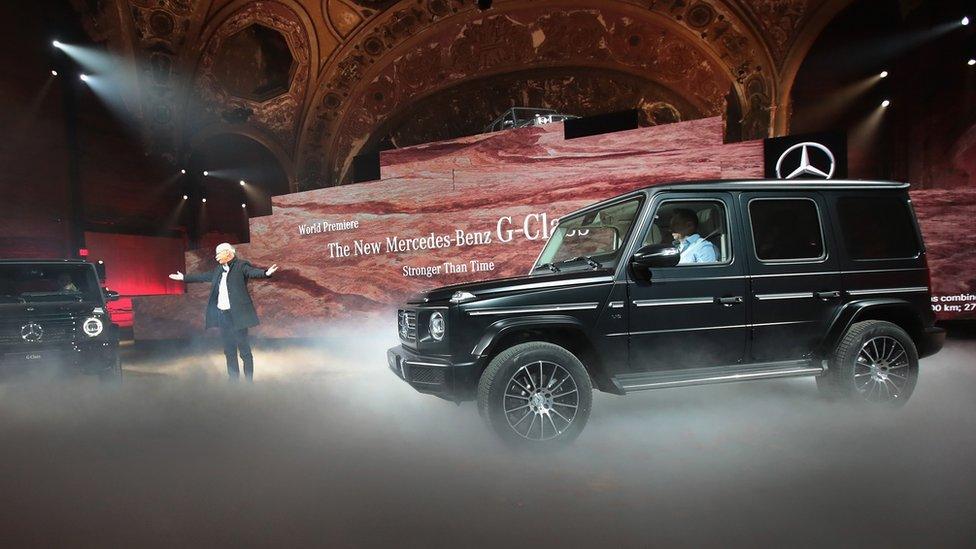
Daimler's chairman Dieter Zetsche introduces its latest Mercedes-Benz G-Class SUV
This year's show is heavy on nostalgia, especially from the established US and European carmakers.
Chevy is celebrating the 100th anniversary of its Silverado truck. In the US, Ford has revived the Ranger, which was already available in foreign markets. The company also drew on the 1968 movie Bullitt for its latest Mustang sports car.
Mercedes-Benz also re-engineered its deluxe G-class SUV, introducing new suspension, steering and safety systems, while preserving the boxy look of the original 1979 off-road vehicle.
The pricey wagon only represents about 1% of Mercedes' US business, but it says the classic design resonates with the public.
"The attention that we get with it is just unbelievable," says Dietmar Exler, president and chief executive of MB USA.
- Published15 January 2018
